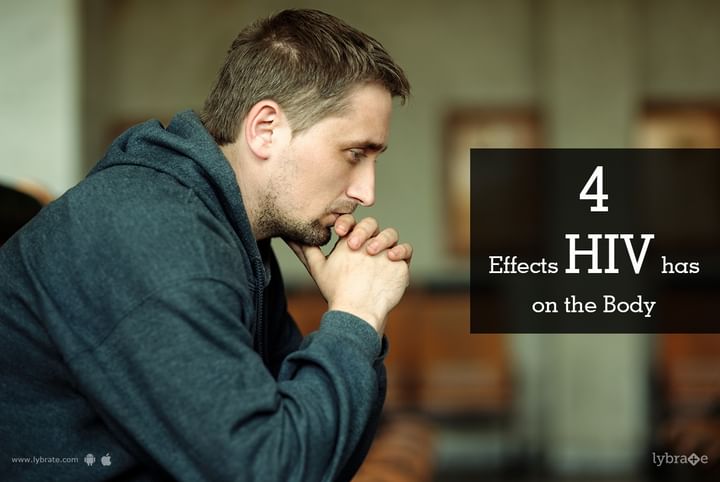4 Effects HIV has on the Body
HIV, which is short for Human Immunodeficiency Virus, penetrates your body and directly attacks your immune system. In this process, the virus weakens your body's natural defense mechanism against diseases and infections. A compromised immune system makes the body prone to minor infections, which healthy people would generally overcome. The virus itself doesn't cause any physical symptoms. It only serves to ease the entry of other bacteria and viruses into the body.
The following are some of the ways HIV affects your body:
1. Immune system - The human immunodeficiency virus destroys CD4 cells, the white blood cells that help the immune system ward off foreign substances. If left unchecked, HIV can develop into AIDS. During such time, the virus may damage the immune system to an extent that it wouldn't be able to ward off minor infections that a healthy immune system would. A person with HIV could thus suffer from fever, chills, sweats, shortness of breath, white spots in the mouth, fatigue, skin rash and weight loss from time to time.
2. Respiratory system - As HIV develops into AIDS, the body can contract infections such as pneumocystis pneumonia (PCP), tuberculosis and Kaposi's sarcoma. These conditions lead to serious respiratory problems. PCP is found to be one of the most common infections among people with HIV. 85% of the people would develop the infection if the condition is left untreated.
3. Skin problems - As in healthy individuals, many skin conditions can also occur in people with HIV or AIDS. But a compromised immune system heightens the condition and causes difficulty in treatment. Dermatitis, psoriasis, and hives are common conditions. They are also prone to a rare type of skin cancer known as Kaposi's sarcoma.
4. Gastrointestinal System - Gastrointestinal disorders are the most common ailments for people diagnosed with HIV and AIDS. Problems faced include diarrhea, nausea, vomiting, weight loss, abdominal pain and gastrointestinal bleeding. 50% of the people suffering from HIV encounter gastrointestinal disorders at some point of their illness.
'Consult'.
Related Tip: Bananas Have the Potential to Prevent HIV Infection



+1.svg)
